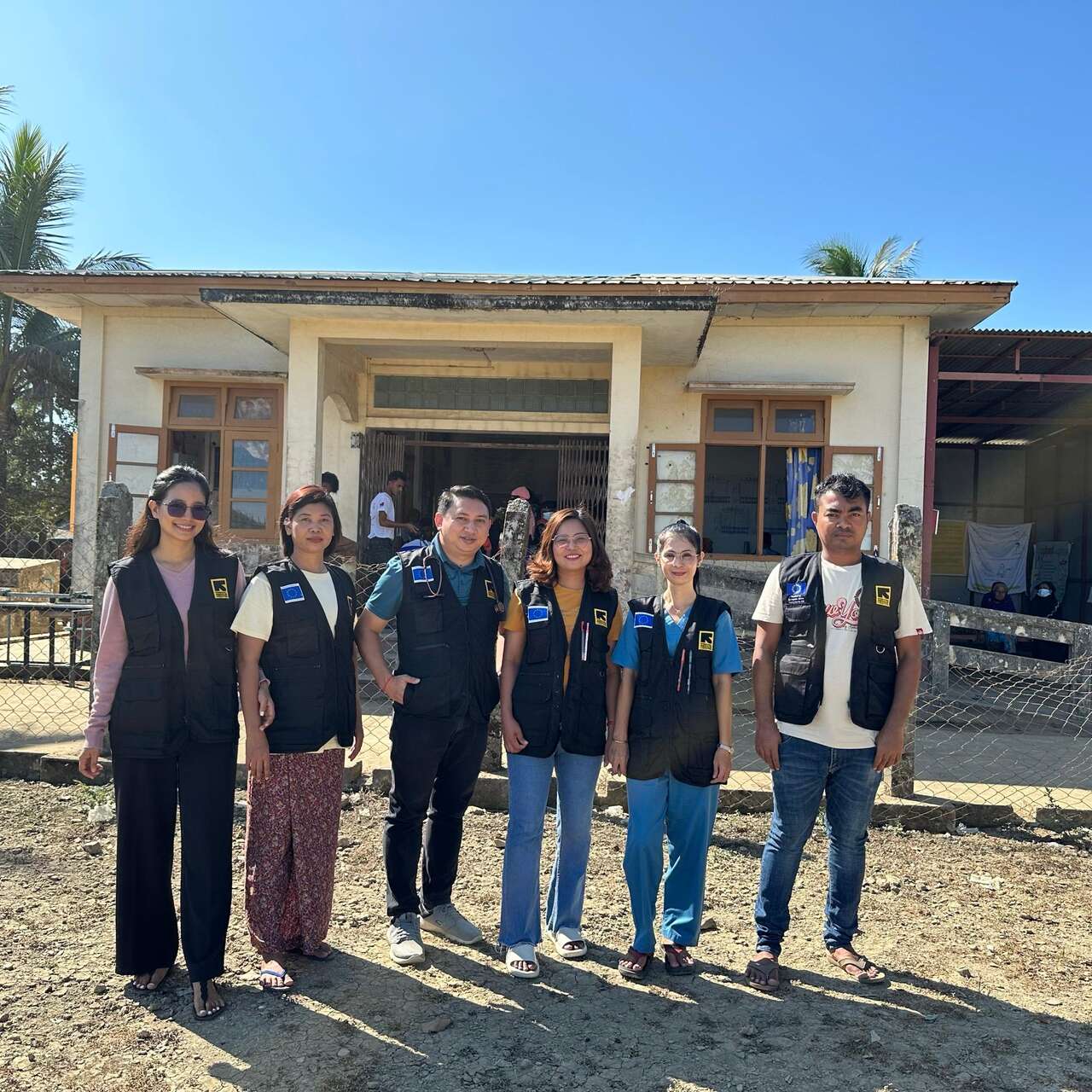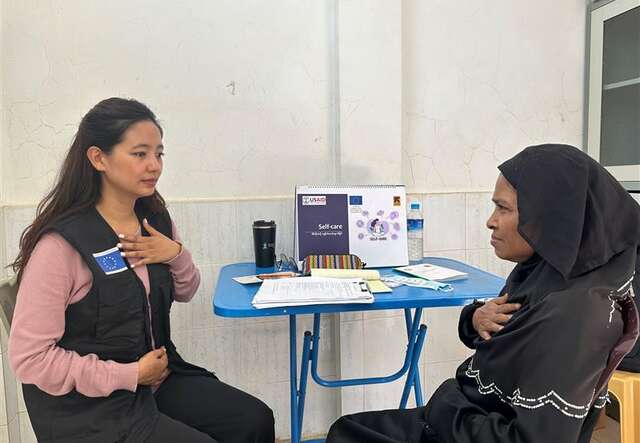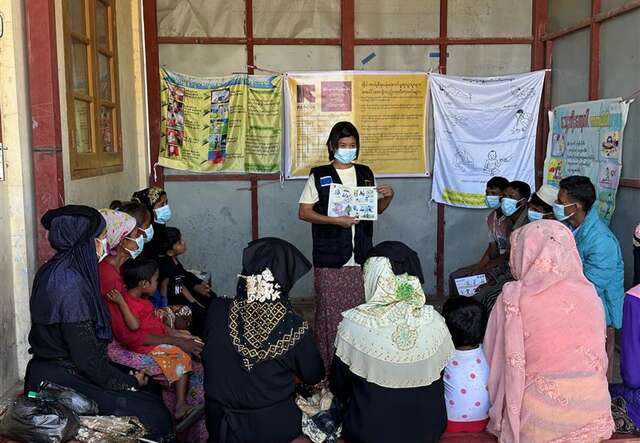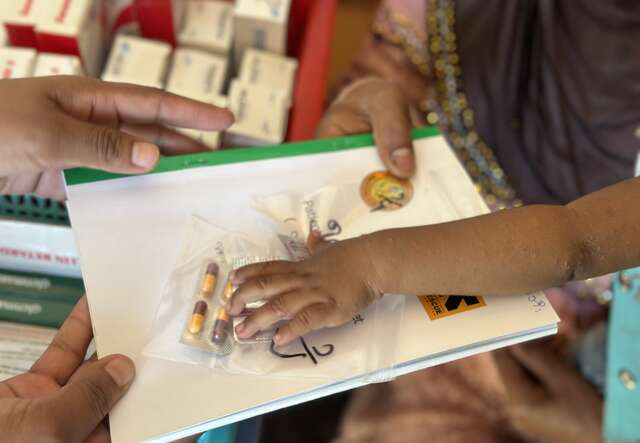
Norr Sarah: A Dedicated Counselor Advocating for Mental Health in Myanmar
In Myanmar, conflict and natural disasters have left communities displaced and vulnerable.

In Myanmar, conflict and natural disasters have left communities displaced and vulnerable.
In Myanmar, conflict and natural disasters have left communities displaced and vulnerable. The International Rescue Committee’s (IRC) Mobile Clinic team provides a vital lifeline to those who need it. Among the many dedicated members of the team is Norr Sarah, a health counsellor committed to improving the mental well-being of displaced populations. Her role on the Mobile Clinic team involves raising awareness about mental health issues and providing both individual and group counselling to those struggling with the stresses of displacement and ongoing conflict.
Norr’s journey to this essential work began in 2019 as a mobile nurse and then in the Mental Health and Psychosocial Support (MHPSS) sector. But when Cyclone Mocha struck, the need for emergency response brought Norr to her current role to help provide mental health support for those affected by the cyclone.

During a typical day at the clinic, Norr conducts awareness sessions for small groups focused on topics like mental health, stress management, and self-care. "The condition of people living in the displacement camps is extremely stressful," she explains. "They are anxious because they don’t have access to basic needs—food, income, or security. Their livelihoods have been destroyed, which creates intense stress as they try to survive."
In addition to the group sessions, Norr also offers individual counselling, offering one-on-one support and practical advice for coping with anxiety and stress. While her work isn’t a substitute for formal psychiatric care, she provides critical support through techniques such as sleep hygiene, relaxation exercises, and methods to help individuals manage their thoughts and emotions. "It’s about offering a safe space for people to talk and teaching them how to cope in a healthy way," she says.

The mental health challenges that Norr addresses through her work with the Mobile Clinic are deeply rooted in the realities of displacement and the traumas that forced people from their homes. Many of the individuals she works with are experiencing profound anxiety, insomnia, and depression, often exacerbated by fears of ongoing conflict, climate disaster, or the loss of loved ones. "Some people don’t see the point of living," she says. "They are in mourning and feel hopeless. They have lived with this kind of trauma for so long, and the renewed conflict only reopens old wounds."
The challenges Norr faces also extend beyond the mental health needs of the population. She and her team travel between two main displacement sites where they set up clinics in available spaces. “For people in the remote areas, it is hard to travel to places where they can have access to healthcare or education, and it was equally difficult for us to reach them,” Norr says.
The shortage of medicines is also a significant problem. Basic medications for chronic conditions like high blood pressure and diabetes are often out of stock or simply unaffordable. "People can’t even afford three meals a day, so medicine is far out of reach for them," Norr explains. “People cannot access routine healthcare services. Children aren’t going to school, and many people don’t have income because the sources of work–like fishing or daily labour–have been severely restricted."
The situation is further complicated by political turbulence and conflict, which have led to blockages of humanitarian aid, making it nearly impossible for displaced communities to return home or rebuild their lives. Yet still, Norr holds onto hope. "I hope they can return home one day," she says. "They’ve had to leave everything behind, and wherever they are now, it doesn’t feel like home. But they survive with the hope of going back."

Despite the many challenges of this work, Norr remains committed to her role. The stories of individuals who find comfort in her counselling sessions and the small improvements in their mental health that she helps facilitate are a source of pride for her. "Even though I can’t change their physical circumstances, I can provide emotional support. That makes a difference for many." counselling
Norr’s work is a testament to the resilience and dedication of those on the frontlines of humanitarian response, working tirelessly to support communities in the most difficult circumstances. And while the future of these communities remains uncertain, Norr’s hope for a better tomorrow for the people of Rakhine endures. "I want a happy society," she says, "where everyone has access to healthcare, education, and a future full of possibilities."
The International Rescue Committee partners with the European Union to provide life-saving support to people caught in conflict and disasters around the world. Our work funded by the EU enables people to survive, recover and rebuild their lives.